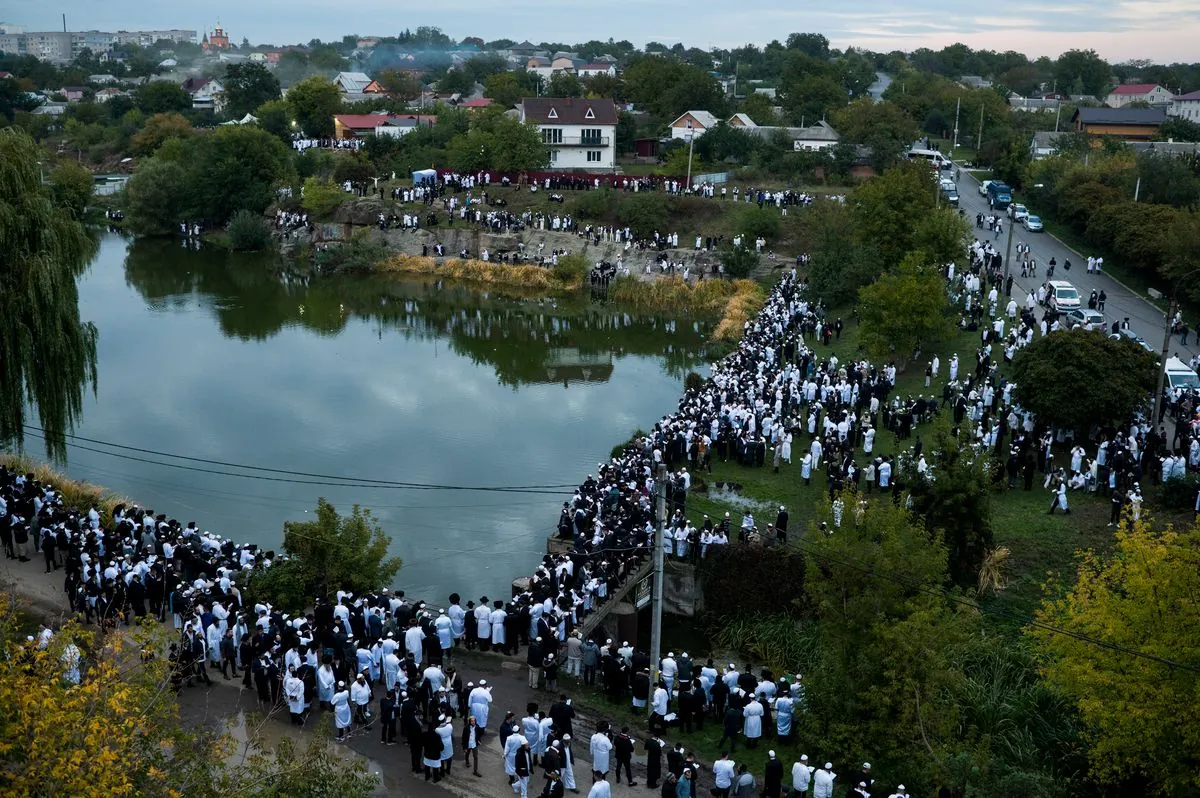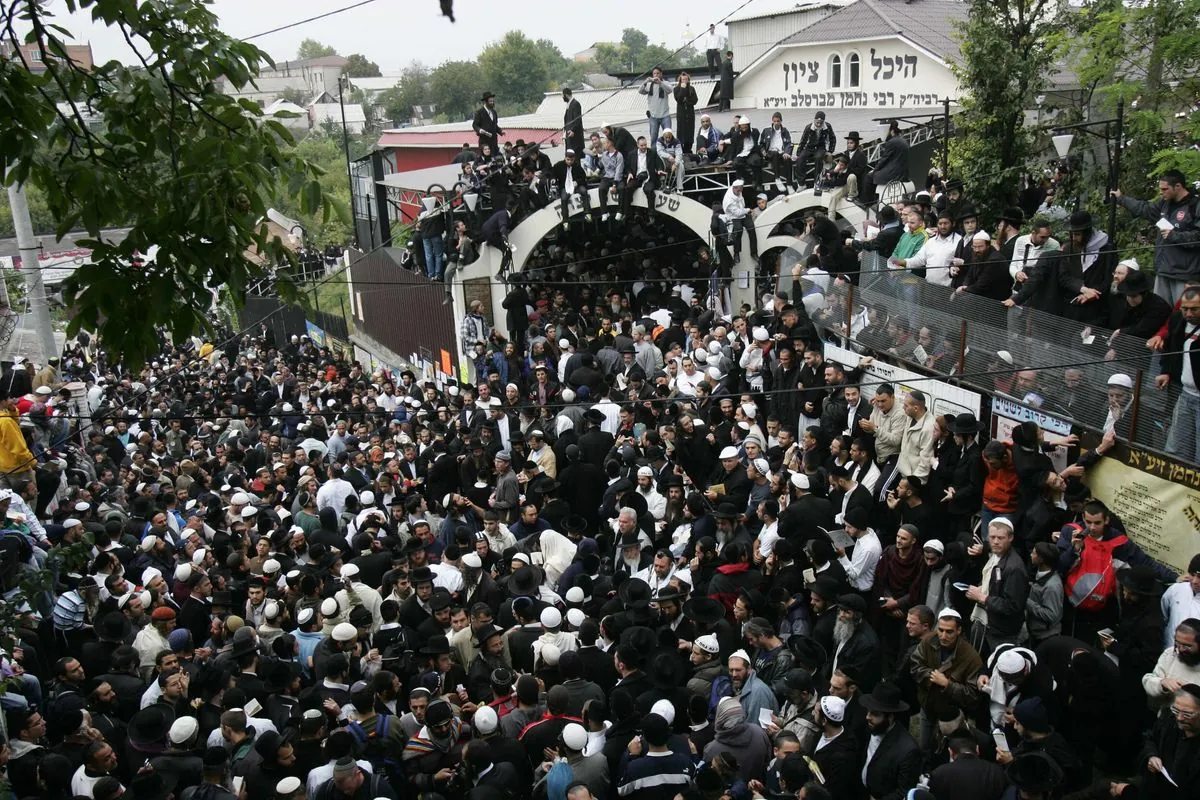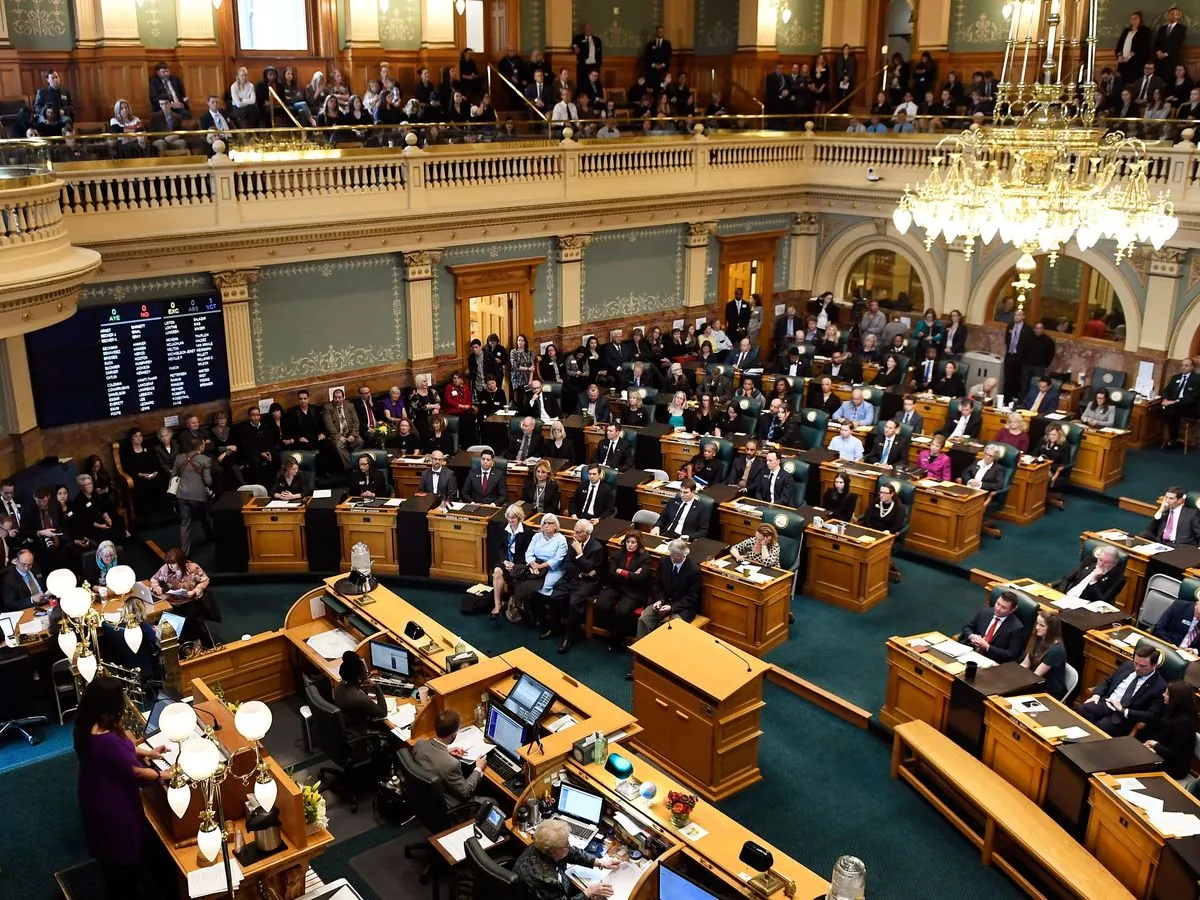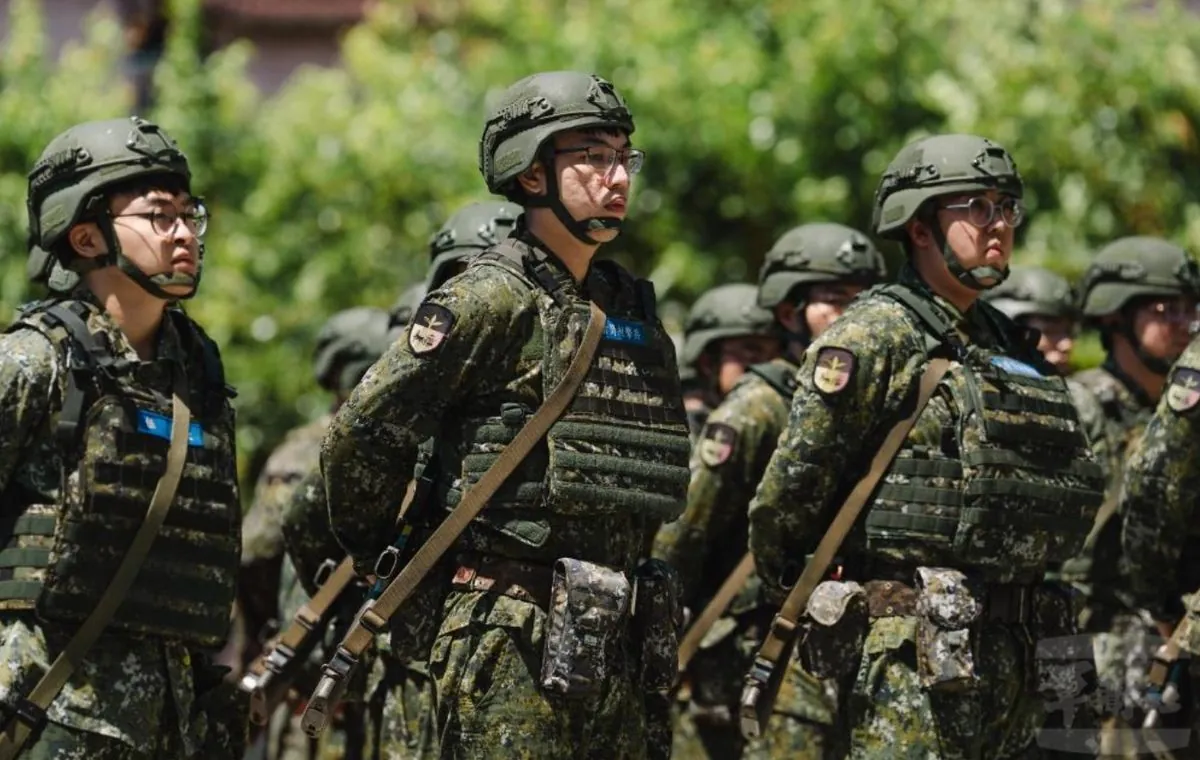Jewish Pilgrims Brave War to Celebrate Rosh Hashana in Uman, Ukraine
Despite ongoing conflict, 35,000 Jewish pilgrims gather in Uman, Ukraine for Rosh Hashana. Overcoming travel challenges and security concerns, they honor Rabbi Nachman's legacy amidst global tensions.

In the heart of Ukraine, the city of Uman has once again transformed into a hub of spiritual devotion as 35,000 Jewish pilgrims converge to celebrate Rosh Hashana, the Jewish New Year. This annual pilgrimage, centered around the tomb of Rabbi Nachman of Breslov, continues despite the ongoing conflict between Ukraine and Russia, now in its third year.
Uman, located 200 kilometers south of Kyiv, has been a focal point for Hasidic Jews since the late 18th century. The city, founded in 1616, has a rich Jewish history and is home to the final resting place of Rabbi Nachman, a pivotal figure in Hasidic Judaism who passed away in 1810. The pilgrimage, which was largely suspended during the Soviet era, has seen a significant resurgence since Ukraine's independence in 1991.
The streets of Uman are adorned with Hebrew signage, guiding pilgrims to the former Jewish cemetery where Rabbi Nachman's tomb is located. The air is filled with prayer chants and the sound of the shofar, a traditional ram's horn blown during Rosh Hashana services. This atmosphere reflects the deep spiritual significance of the event, as many believers hold that praying at the Rabbi's grave during the New Year brings special blessings.
Despite warnings from Ukrainian and Israeli officials about potential security risks, the number of pilgrims this year matches pre-war levels. Rabbi Moshe Reuven Azman, a prominent figure in Ukraine's Jewish community, expressed concern for the safety of the pilgrims:
"Every year (since Russia's full-scale invasion), I speak on Israeli television and radio, and I call on the (Jewish) pilgrims not to come to Ukraine. My primary concern is for the lives of people."
The persistence of the pilgrims in the face of danger is exemplified by Nachman Shitrit, an 18-year-old from Haifa, Israel, who shared his perspective:
"The war here didn't scare me from traveling to Ukraine; there's also war where I came from."
The journey to Uman has become increasingly challenging due to Ukraine's closed airspace, a measure implemented in February 2022 at the start of Russia's full-scale invasion. Pilgrims must now travel overland through other European countries to reach their destination. This year, additional complications arose from the recent conflict escalation in the Middle East, with Iran's missile attack on Israel causing flight cancellations and preventing over 14,000 pilgrims from making the journey.
Meir Shpanier, a 23-year-old pilgrim from Tel Aviv, described his arduous journey:
"I managed to get here by a miracle. My travel agent booked airplane tickets from Tel Aviv to Budapest. From there, a Ukrainian driver picked me up, and we drove 22 hours to Uman. But some of my friends had to travel through five countries."
The determination of these pilgrims underscores the profound significance of this spiritual journey. The annual influx of visitors has a substantial impact on Uman's economy, with a population of approximately 82,000 people. The Ukrainian government has taken steps to accommodate the large number of pilgrims, although the event has occasionally caused tensions with local residents.
As the pilgrimage continues amidst global tensions and regional conflicts, it serves as a testament to the enduring power of faith and tradition. The gathering in Uman not only honors the legacy of Rabbi Nachman but also highlights the resilience of the Jewish community in the face of adversity.

This remarkable display of devotion occurs against the backdrop of ongoing hostilities in Ukraine, where Russian forces continue to launch attacks and make territorial gains. The situation serves as a stark reminder of the complex geopolitical landscape in which this centuries-old tradition persists, bridging the gap between ancient spiritual practices and the harsh realities of modern conflict.


































